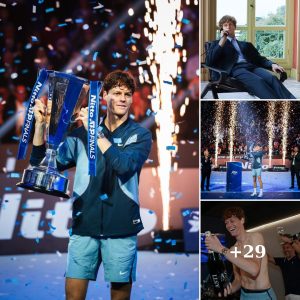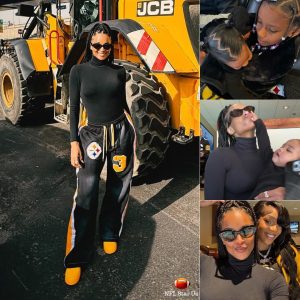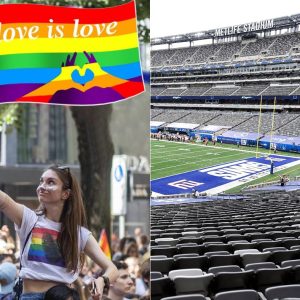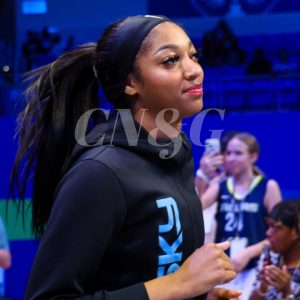The idea of pettiness toward the Indiana Fever star isn’t about Clark, but rather about how we treat Black women we think are upset by her success

Indiana Fever guard Caitlin Clark looks on during the game against the Las Vegas Aces on May 25 at Michelob ULTRA Arena in Las Vegas. Jeff Bottari/NBAE via Getty ImagesBy David Dennis Jr.@DavidDTSSMay 27, 2024
Caitlin Clark was always going to be the biggest story for at least the first few weeks of the 2024 WNBA season. She came into the league as the best player in college, having won National Player of the Year, and carried her Iowa team to the national championship game. She is also a major factor in the way that ratings and ticket sales are skyrocketing.
Six games into her rookie season with the Indiana Fever, however, the talk about Clark’s career has been less about her play and more about where she sits in the center of our own sociopolitical projections, with male athletes such as Charles Barkley and LeBron James even chiming in about the way she’s perceived, treated and embraced. Much of the consternation is about the notion that Clark is somehow being mistreated, but the question is who supposedly mistreats by and what it says about what we feel toward the rest of the players in the WNBA.
“You women out there, y’all petty, man,” Barkley said, his brow furrowed as he stared into the camera during the pregame show for Game 1 of the Western Conference finals last Wednesday. “Y’all should be thanking that girl [Clark] for getting y’all ass private charters. All the money and visibility she’s bringing to the WNBA, don’t be petty like dudes. Listen, what she’s accomplished, give her her flowers.”
Barkley’s comments came on the heels of LeBron’s own about Clark on his “Mind The Game” podcast with JJ Redick: “Don’t get it f—ed up. Caitlin Clark is the reason why a lot of great things is going to happen for the WNBA. But for her individually, I don’t think she should get involved on nothing that’s being said. Just go have fun.”
Both James and Barkley allude to negative comments, especially those coming from women in the WNBA toward Clark, but it’s unclear where exactly they think the pettiness is coming from. Who are the women hating on Clark?
 Aliyah Boston (left) and Caitlin Clark (right) of the Indiana Fever talk to the media after the game against the Los Angeles Sparks on May 24 at Crypto.com Arena in Los Angeles.
Aliyah Boston (left) and Caitlin Clark (right) of the Indiana Fever talk to the media after the game against the Los Angeles Sparks on May 24 at Crypto.com Arena in Los Angeles.
ADAM PANTOZZI/NBAE VIA GETTY IMAGES
You can scour the WNBA discourse online for quotes and be hard-pressed to find comments critical of Clark or any that can be anywhere remotely close to being characterized as “pettiness” or “hating.” Over the past few days, social media has been repeating the same handful of comments that have been misconstrued as negative about Clark. It only takes a few extra seconds to evaluate what was actually said to see that the comments are harmless, and valid.
When Clark’s college rival Angel Reese and her Chicago Sky beat the New York Liberty over the weekend, Reese tweeted out, “And that’s on getting a win in a packed arena, not just cause of one player on our charter flight.” The since-deleted tweet was largely perceived as a slight at Clark, but it was in direct response to Barkley’s statement that it was Clark who’s responsible for the chartered flights.
Two other widely shared instances of supposed hate didn’t even come from WNBA players. One was a comment from The Atlantic columnist Jemele Hill to the L.A. Times: “We would all be very naive if we didn’t say race and her 𝓈ℯ𝓍uality played a role in her popularity. While so many people are happy for Caitlin’s success — including the players; this has had such an enormous impact on the game — there is a part of it that is a little problematic because of what it says about the worth and the marketability of the players who are already there.”
Those comments led to a debate on “The View” in which co-host Sunny Hostin said. “I do think that she is more relatable to more people because she’s white, because she’s attractive.”





